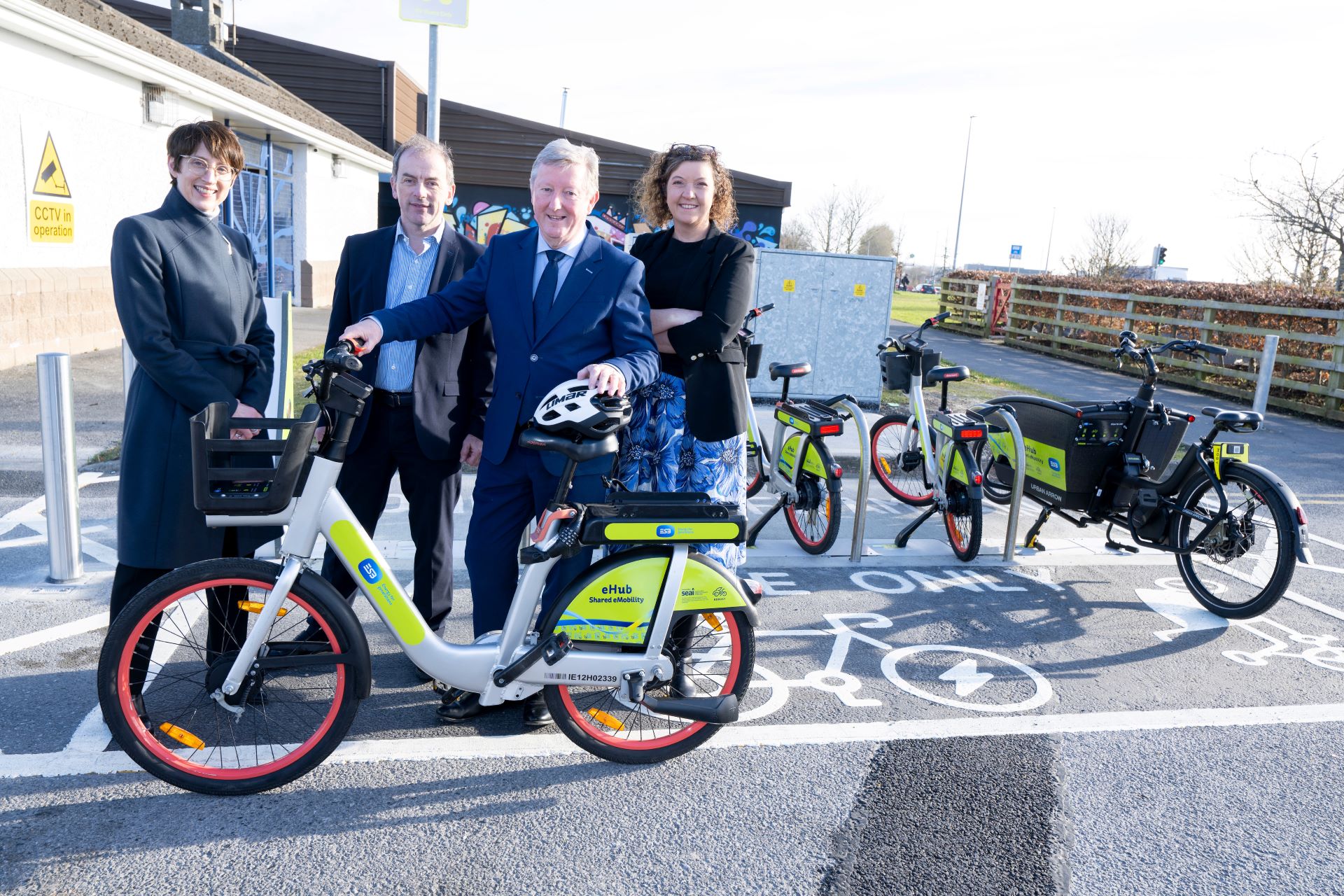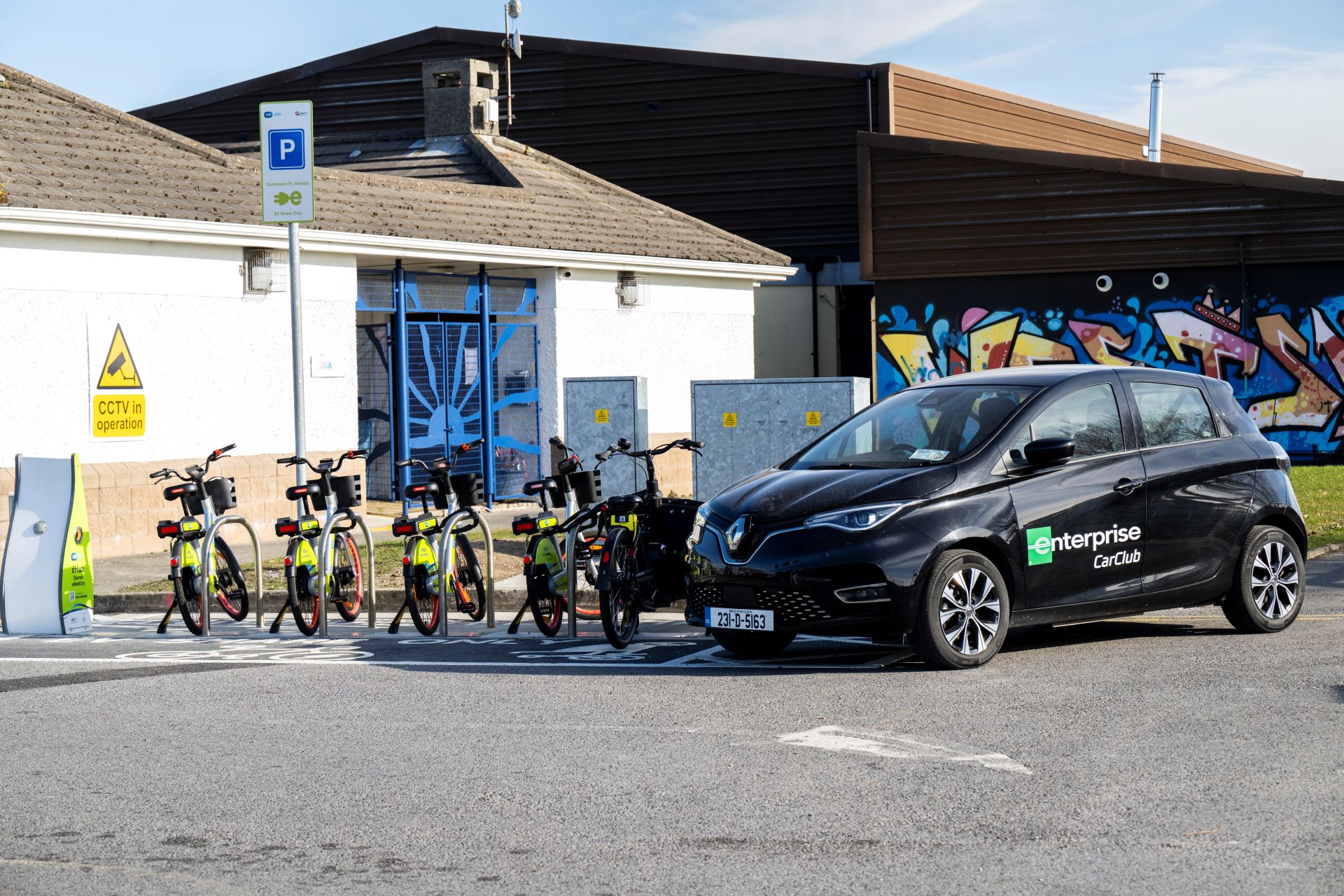Transport represents the second-largest source of greenhouse gas emissions in Ireland – over 21% of total emissions in 2023, according to the Environmental Protection Agency. And as urban housing developments grow to accommodate a rising population, we are increasingly reliant on private cars to get from A to B. This means not only more carbon in the atmosphere, but more stress for drivers stuck in traffic or hunting down scarce parking spots.
Replacing petrol and diesel cars with electric vehicles (EVs) goes some way to addressing emissions. But transforming transport for the times we live in requires a more fundamental rethink of personal mobility: moving beyond a focus on personal car ownership as the default, to take advantage of other modalities like public transport, walking and biking, and shared mobility solutions.
Shared mobility services allow users to access vehicles for a short time – renting a car, van or bicycle by the hour, for example. For many, this can be a convenient and cost-effective alternative to owning a car, with studies showing that one shared vehicle can replace between four and eight private cars. If car- or bike-share operators want to offer electric options, however, they need to have access to electric charging.

Launch of eHub in Galway - pictured (left to right): Lorraine Cronin, Innovation Product Manager; Donal Phelan, Head of Innovation, ESB Group; Sean Canney, TD for Galway East and Geraldine Moloney, Head of New Ventures, ESB.
Electric mobility hubs – go green, go shared
One solution is electric mobility hubs, or ‘eHubs’: one-stop locations where people can access shared EVs, e-bikes or eCargo bikes. As part of ESB’s mission to empower customers and communities to live more sustainably, we are now teaming up with partners in industry and research to roll out a pilot series of new eHubs around the country.
The first set of four multimodal eHubs has been launched at Westside Library Car Park in Galway, in partnership with Trinity College Dublin, Atlantic Technological University and Enterprise Car Club, with funding from the Sustainable Energy Authority of Ireland (SEAI). Additional hubs are set to follow in the coming months at sites in the Dublin suburb of Dundrum, Letterkenny in Donegal, and Waterford city.
Each of these purpose-built facilities will include an ESB charge station reserved for two shared EVs provided by Enterprise Car Club, which can be rented through the car company’s app. They will also offer four ESB e-bikes and one eCargo bike, which can be booked through a dedicated ESB eHubs app.
In addition, ESB has launched three EV-focused eHubs in the greater Dublin region: in Swords, Sandyford and Malahide. These will include an ESB charge station, reserved for two shared EVs from suppliers Go Car and Yuko, available through their existing apps.

Convenient, cost-effective, carbon-busting
Convenient and accessible, these eHubs can make shared e-mobility an easy and practical option for a growing number of people. Whether biking or driving, users can select greener options without the expense of purchasing their own EV or e-bike. In time, hubs like these can become part of a multimodal green transport system, where private cars are just one link in a chain that includes public transport, shared mobility, and active travel like walking or cycling.
“We continuously strive to explore the potential of new technology to achieve ESB’s Net Zero by 2040 goal through three key objectives: decarbonising energy, building resilient infrastructure and empowering customers to live more sustainably,” comments Donal Phelan, Head of Innovation at ESB Group. “Our commitment to sustainability and innovation is at the heart of this eMobility Hub pilot. Working with key partners to deliver this pilot ensures that we are collectively working towards a cleaner, greener, and more connected urban future.”
For eHubs locations and to download the apps, see: www.esb.ie/ehubs
